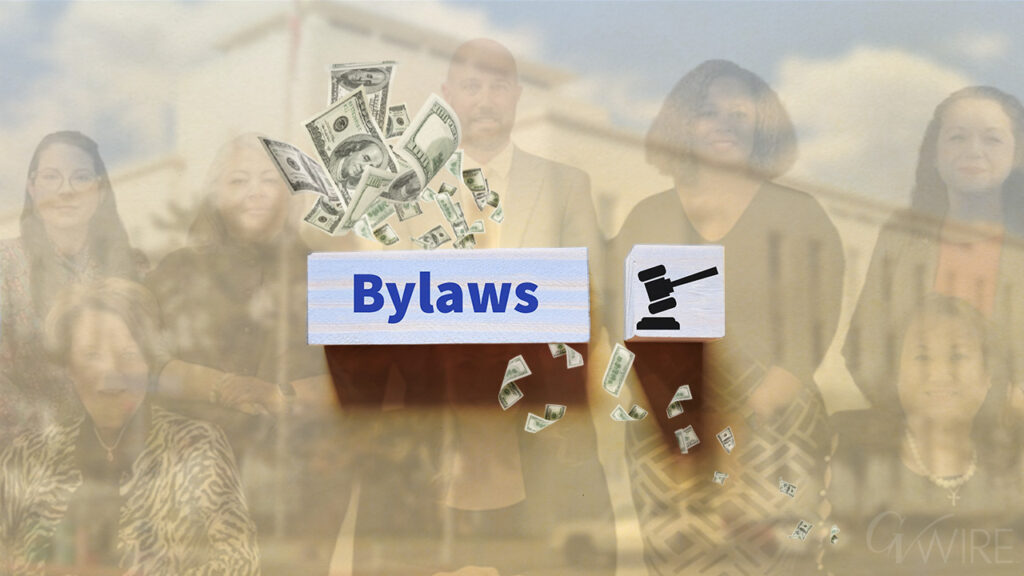
- Legislators eye Visa and Mastercard for their huge profit margins and ability to dictate transaction fees.
- The Credit Card Competition Act would require banks to offer more alternatives to small businesses to process card payments.
- The U.S. Department of Justice has an antitrust suit against Visa for its control of the debit card payment industry.
Share
|
Getting your Trinity Audio player ready...
|
Few Americans know that they spend on average $1,100 a year to pay for credit card transaction fees.
In addition, U.S. retailers pay $170 billion annually to process credit card transactions, according to testimony from the Senate Judiciary Committee in November 2024.
More than a decade ago, the federal government limited how much companies such as Visa could charge for debit card transactions. Legislators want to do the same now with credit cards.
For several years, a bipartisan coalition of legislators has gone after Visa and Mastercard for their domination of payment processing.
Opponents of the 2022 Credit Card Competition Act — expected to come back in 2025 — say the proposed law mandating greater competition would get rid of rewards and compromise investments in security.
However, supporters of the bill say the math of the credit card companies and banks doesn’t add up.
The average 2% charge on every transaction to businesses comes out nine times higher than the European Union, four times higher than China, and two times higher than Canada. Those countries also offer credit card rewards.
Federal officials contend that Visa and Mastercard, who report profit margins exceeding 50%, can change the market on a whim without fear of competition. Visa and Mastercard control 80% of the market share.
Visa Faces Antitrust Charges
The U.S. Department of Justice in November brought antitrust charges against Visa for its control over the debit card market.

“I’m not surprised that both aisles of the spectrum are on this. So hopefully, the appetite to take action is going to be enough to do something. We’ll see.” — Fresno State professor of economics Antonio Avalos
Legislators hope by requiring large banks to offer businesses more options, they can bring prices down.
“Visa is a virtual monopoly,” said U.S. Senator Roger Marshall, R-Kansas. “At least that is what the DOJ is accusing them of — working in tandem with Mastercard, partnering with a number of Wall Street megabanks and thus controlling over 80% of the market.”
Meaningful change, however, will be more difficult to enact, said Fresno State professor of economics Antonio Avalos.
The federal government has successfully broken up major monopolies in the past such as Bell Telephone and Standard Oil. But creating competition in a market as vast as the global payment system will be an uphill battle, Avalos said. But he said it’s encouraging to see legislators taking up the fight.
“Nobody’s going to dispute that these two companies enjoy this duopoly power that they are using and have been using for many, many years,” Avalos said. “I’m not surprised that both aisles of the spectrum are on this. So hopefully, the appetite to take action is going to be enough to do something. We’ll see.”
Legislators Want Competition to Lower Transaction Fees
The Credit Card Competition Act from Marshall and Sen. Dick Durbin ( D-Illinois) forces banks with more than $100 billion in assets to offer at least one payment platform to businesses that isn’t Visa or Mastercard. The bill got support from Republicans and Democrats alike, including now Vice President JD Vance.
Legislators hoped the competition route, rather than the regulatory route taken by the EU could bring down Visa’s and Mastercard’s transaction fees.
“With downward pressure on these exorbitant interchange fees, more money will flow to local restaurants, bookstores, and shops that we all frequent,” Durbin said in the November hearing.
The bill did not make it out of committee in 2024, but many expect it to come back, despite no commitment from long-time senator Durbin to run again in 2026.
Durbin expected the act to have a similar effect as the amendment he authored in the landmark Dodd-Frank Wall Street Reform Act that capped debit card transaction fees.
$1.1 Trillion in Transaction Fees Since 2006: Sen. Durbin
Since 2006, $1.1 trillion has been paid in transaction fees, Durbin said. Of that, only a third came from debit card transactions. He attributed that disproportionate amount to the Durbin Amendment.
Card companies, however, say the constantly evolving world of transaction processing requires major investments.
Linda Kirkpatrick, president of the American Region for Mastercard, said at the hearing the current system provides security protections. Consumers aren’t responsible for fraud. Merchants get paid even if consumers default, and security protections help prevent fraud.
Bill Sheedy, senior advisor to Visa, said small businesses can compete with large businesses at the same level. Sheedy later in the hearing, however, admitted that large businesses such as Walmart get preferential transaction fees based on their sales volume. However, Sheedy said the Competition Act discourages innovation and consumer choice.
“The Credit Card Competition Act would remove consumer control over their own payment decisions, reduce competition, impose technology-sharing mandates, and pick winners and losers by favoring certain competitors over others,” Sheedy said.
Could Competition Act Reduce Rewards?
The greatest consequence of the Competition Act could be in credit card rewards. Much like how debit card rewards disappeared after the Durbin Amendment capped transaction fees, many speculated the same would happen to credit card rewards earners.
That could hurt entertainment and tourist industries greatly, reported industry website Digital Transactions. A study by Oxford Economics Research pegged losses at Miami and Las Vegas at $6.5 billion and $5.8 billion, respectively. Detractors of the study said economic losses would be countered by increased profits on the business side.
In Europe, credit card rewards still exist, despite the .3% transaction fee cap, Sheedy conceded in the hearing. He said those rewards are reduced.
Credit card rewards — paid for by banks — represent a small percentage of the income from credit cards, said Doug Kantor, general counsel for the National Association of Convenience Stores at the hearing. Rewards cost banks $41 billion annually compared to the $300 million collected from interest, consumer fees, and swipe fees.
And, with an anticipated $16 billion in losses if the Competition Act were approved, Kantor said that amount would not be significant.

“If the banking industry, which has the highest profit of any industry in the United States, bar none, can’t make that work, I don’t know what we can do for them,” Kantor said.
Rewards programs also benefit wealthier consumers, Kantor and other analysts say.
A 2022 Federal Reserve study says every year, $15 billion in fees and interest rates get transferred from people with low credit scores to people with high credit scores to pay for rewards.
Trading lower prices at the grocery store for lower rewards benefits everyone, said Roger Alford, professor of law at Notre Dame at the November hearing.
Visa Uses Its Profits to Stifle Competition: DOJ
The Department of Justice in 2024 went after Visa for alleged monopolistic behavior regarding debit card transaction fees. More than 60% of debit transactions go through Visa’s network to the tune of $7 billion annually. This monopoly allows it to collect higher transaction fees and an 83% operating margin, attorneys allege.
They said the “must-have status” allows the company to deny potential rivals from gaining market access and scaling to compete.
It’s used hundred-million-dollar partnerships to dissuade smaller payment processors such as Apply Pay, Square, and PayPal from becoming competitors, according to the lawsuit.
“Networks need scale on both the issue and merchant sides of the market to compete effectively; the lack of scale on one side makes it hard to build scale on the other,” the lawsuit states. “Visa’s agreements with issuers on the one hand and merchants and acquirers on the other exacerbate its rivals’ scale problems on both sides of the market.”
Sheedy acknowledged the partnerships but said they have nothing to do with limiting competition.
Creating Competition Easier Said Than Done
Creating competitors in the payment system would be a tall order, Avalos said. Payment processors must communicate with banks on either side of the transaction.
“I would like to see my local bank offering for example a credit card that would charge me lower fees, and I would be supportive of my local bank,” Avalos said. “But I wonder if my local bank has the size big enough to be connected and pay all these other services so that I can take my local card to Europe or Latin America.”
That made Avalos question whether creating competition or regulation is the best way to lower credit card fees.
Senator Lindsay Graham, R-South Carolina, similarly asked his colleagues on the Judiciary Committee whether regulation would be a better approach.
The U.S. successfully broke up the Bell Telephone System and Standard Oil long ago. Mergers and acquisitions have led to greater consolidation in those industries, Avalos said.
Effectively lowering rates through competition requires genuine rivals.
“Whether we can solve this problem through regulation or through competition, the competition that we create, if we do go that way, has to be effectively competitive — not just in name,” Avalos said.
RELATED TOPICS:
Categories


















